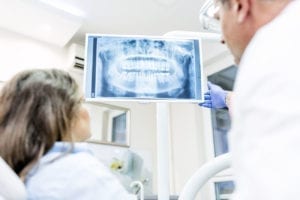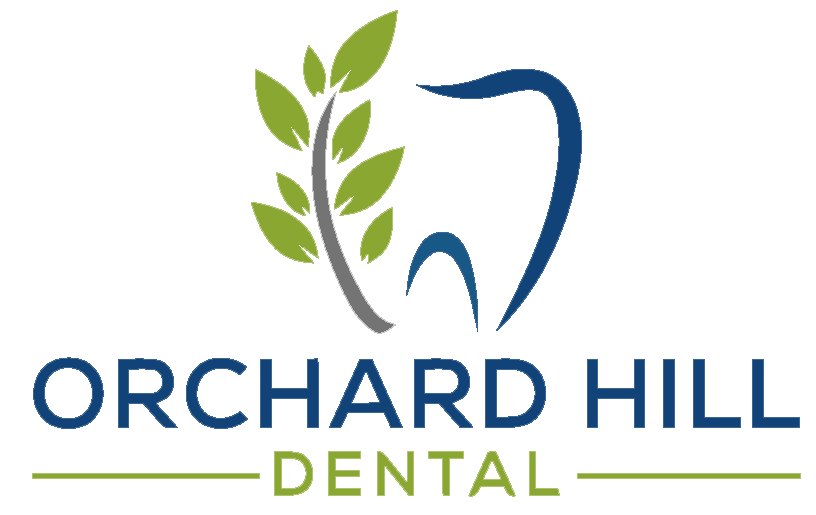There are multiple reasons for tooth extractions, including gum disease, tooth decay, wisdom teeth, and overcrowded teeth. Gum can easily impact the health of your gums and teeth, and patients with excessive damage due to the disease may need a tooth extraction.
Simple tooth extraction may be the only option in advanced cases of tooth decay. If a tooth or teeth can not be saved using conservative measures, then the tooth may need to be extracted to prevent decay from spreading further and causing more tooth damage. Tooth extractions are one of the general dental care services Dr. Jessica Christy provides to the public in Hendersonville, NC.
Impacted wisdom teeth may cause tooth or gum infection, tooth pain, or severe tooth damage to neighboring teeth, which means they require extraction. Overcrowding of the teeth can lead to complex bite disorders, crooked teeth, excessive wear on the enamel, and jaw pain. Removing overcrowded teeth can help alleviate painful symptoms and improve your oral health.
You can call Orchard Dental for tooth extraction treatment at (828) 247-7001. Your dentist in Hendersonville, NC, Dr. Jessica Christy, and her dental care team work with patients to ensure that treatment is as comfortable as possible.

Tooth Extraction Aftercare
Though it’s a fairly simple procedure, you must take care of the extraction site to ensure it heals properly. Without proper care, a painful condition called dry socket can develop.
The Day of the Extraction
When we extract the tooth, we’ll immediately provide gauze for you to bite down on at the extraction site. This stops the bleeding and assists with forming a clot. You’ll need to bite down on that gauze for around 30 minutes to stop the bleeding adequately. We’ll send you home with extra gauze in case you need it. When you remove your gauze, check to see if the site is still bleeding. If it is, use a new piece of gauze and continue to bite down until the bleeding stops.
It’s normal to experience some soreness and swelling around the extraction site. Use over-the-counter pain relievers to lessen the pain. Ibuprofen helps with inflammation, so it can help with swelling, too. At your discretion, a cold compress also helps keep the swelling down. Use the compress for 15 minutes, taking at least a 15-minute break between each icing session. If you ever experience severe pain, swelling, or bleeding, call our office immediately.
The Days Following Extraction
After the first 24 hours, you can use a warm saltwater rinse to clean the extraction site and assist the healing process. Gently swish the water around your mouth, avoiding any aggressive movements. While you should still brush your teeth after an extraction, avoid the extraction site altogether. You don’t want to disturb the blood clot as you heal.
In the days after your extraction, you should stick to a soft diet. Foods like soup, mashed potatoes, and yogurt are all good options. Don’t chew or try to process food on the side of the extraction site. Try to chew everything on the opposite side. Don’t eat or drink anything overly hot or cold, which can irritate the extraction site. You can start introducing more solid foods as the days go by, and you start to feel better.
Avoid using tobacco products for at least 72 hours after the extraction. The nicotine in them restricts blood vessels, while the extraction site needs proper blood flow to form a clot and heal. When drinking, you shouldn’t use a straw until the site is completely healed. The suction from it is likely to disrupt the blood clot.
Tooth Extraction FAQs
Tooth extractions are common procedures that we do every day in our office. Learn more by reading the answers to these commonly asked questions.
How soon can I eat after a tooth extraction?
You can remove the gauze to eat about one hour after surgery. Make sure you eat soft foods and avoid using a straw for the first 24 hours following the procedure. You should also avoid hot food and drinks for several hours.
What are my restorative dental options after a tooth extraction?
Dental implants, bridges, and dentures are great restorative options for replacing missing teeth. For a stable and long-lasting restoration, dental implants that are capped with dental crowns are an effective solution. Patients with multiple consecutive missing teeth can benefit from dental bridges which can be removable or secured with dental implants. Dentures can replace whole arches of teeth and can also be removable or implant-secured.
How long does it take to recover from a tooth extraction?
Two to three weeks following the procedure, bone and gum tissue will regenerate. You will then need to restore the extracted tooth or teeth to prevent teeth from shifting and overcrowding. Overcrowding can make it difficult to clean between teeth and can cause more problems like tooth decay.
What helps gums heal faster after extraction?
Practicing good oral hygiene is the most effective way to help the gums heal faster after tooth extraction. Keeping your mouth clean by regularly brushing and flossing will help fight infection, reduce inflammation, and promote healthy healing. It is also important to rinse with an antibacterial mouthwash before and after meals or snacks. After removing the tooth or teeth, your dentist will provide aftercare instructions to follow closely for proper recovery.
When can I chew gum after tooth extraction?
This varies depending on whether you had a simple or surgical extraction. Surgical extractions need more healing time and may keep you from chewing gum or other foods for a week or two post-procedure.
Can I brush my teeth after a tooth extraction?
Yes, you can brush your teeth after tooth extraction. Use a soft-bristled toothbrush and a gentle circular motion when brushing the area around the extraction site. To reduce irritation, avoid vigorous scrubbing, and ask your dentist when brushing the extraction area is okay.
